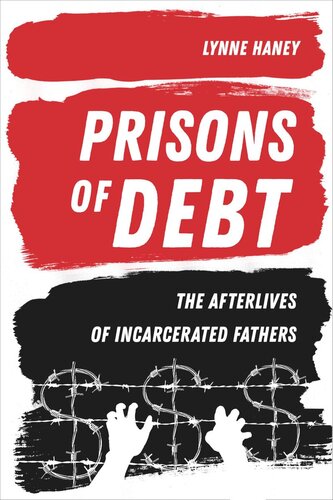

Most ebook files are in PDF format, so you can easily read them using various software such as Foxit Reader or directly on the Google Chrome browser.
Some ebook files are released by publishers in other formats such as .awz, .mobi, .epub, .fb2, etc. You may need to install specific software to read these formats on mobile/PC, such as Calibre.
Please read the tutorial at this link: https://ebookbell.com/faq
We offer FREE conversion to the popular formats you request; however, this may take some time. Therefore, right after payment, please email us, and we will try to provide the service as quickly as possible.
For some exceptional file formats or broken links (if any), please refrain from opening any disputes. Instead, email us first, and we will try to assist within a maximum of 6 hours.
EbookBell Team

4.4
92 reviewsA profound portrait of the hidden injustices that trap fathers in a cycle of punishment and debt.
In the first study of its kind, sociologist Lynne Haney travels into state institutions across the country to document the experiences of the millions of fathers cycling through the criminal justice and child support systems. Prisons of Debt shows how these systems work together to create complex entanglements—rather than "piling up" in men's lives, these entanglements form feedback loops of disadvantage. The prison–child support pipeline flows in both directions, deepening parents' debt and criminal justice involvement.
Through moving accounts of men struggling to be fathers from behind prison walls and under the weight of support debt, Prisons of Debt exposes how the criminalization of child support undermines the most essential of familial relationships. Haney argues that these state systems can end up producing exactly the kind of parent they fear and loathe: bitter, unreliable, and cyclical fathers. Based on observations of 1,200 child support cases and interviews with 145 indebted fathers in New York, California, and Florida, Prisons of Debt reveals the actual practices of child support adjudication and enforcement alongside the lived realities of fathers trapped in those systems. The result is a rigorously documented analysis of how poor men are too often denied their rights of citizenship and of fatherhood.